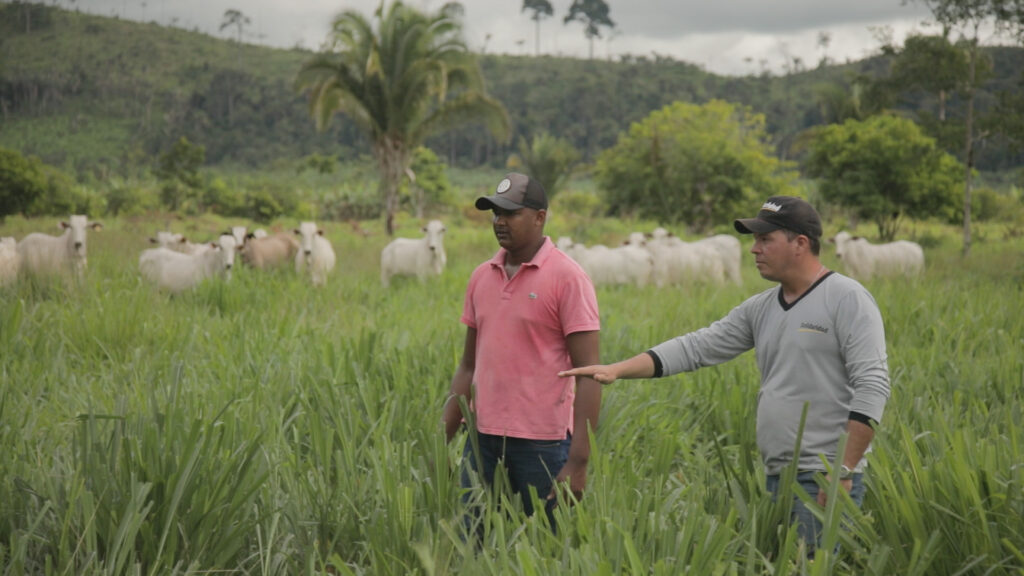Lorem ipsum dolor sit amet, consectetur adipiscing elit. Morbi aliquam laoreet metus, id elementum tellus vulputate et. Mauris eros est, pulvinar vitae condimentum ac, laoreet tincidunt sem.
Lorem ipsum dolor sit amet, consectetur adipiscing elit. Morbi aliquam laoreet metus, id elementum
CTA Headline
This is the Full Width Call To Action template. Click “Convert to Regular Block” to edit.
CTA body

Our Approach
Amazonia Connect operates across four thematic areas.
Low carbon agriculture (LCA) is an approach to farming that reorients agricultural systems to ensure farm viability and conservation in a changing climate. The approach aims to build resilience to climate change, reduce deforestation, reduce or remove greenhouse gas emissions, and increase productivity and incomes.
LCA practices can improve soil health, enhance soil carbon, build climate resilient agro-ecosystems, and reduce pressure on sensitive areas. Large-scale adoption of LCA practices are critical for reducing commodity-driven deforestation, associated greenhouse gas emissions, and improving biodiversity conservation. Learn more about Low Carbon Agriculture and the impacts of technical assistance in Brazil in this report.
Key interventions:
- Deliver technical assistance for implementing LCA practices to producers in target regions in Brazil, Colombia and Peru.
- Train field staff and lead producers in LCA practices.
- Scale LCA and deforestation-free practices at a jurisdictional level, in collaboration with regional and local governments.
| What is low carbon agriculture? Low carbon agriculture refers to a variety of farming practices that reduce or remove greenhouse gas emissions, and sustainably increase productivity and farmer incomes. LCA practices can help producers adapt and build resilience to climate change. Common practices can include growing two crops in the same field at the same time, rotating different crops each season, using no-till agriculture to conserve soil, or contour farming to reduce erosion. <Link to upcoming LCA explainer> |
The private sector is increasingly taking action on environmental and social challenges in their supply chains. Due diligence legislation is pushing many to better understand risks in their supply chains.
Amazonia Connect will engage with private sector partners to adopt improved monitoring tools to identify deforestation and risks to biodiversity in their supply chains, and ensure compliance with broad sectoral zero-deforestation agreements.
Key interventions:
- Improve and adapt traceability and monitoring tools to include other commodities, countries and criteria.
- Disseminate tools and research results and trends will be disseminated among sector stakeholders.
- Support sectoral working groups and key stakeholders to improve information and monitoring practices, and contribute to the implementation of Zero Deforestation Agreements.
- Develop sustainable sourcing guidelines with partner companies.
| What is environmental and social due diligence? Environmental and social due diligence is a way for companies to evaluate social and environmental risks in their supply chains. These risks can include deforestation, pollution, child and forced labor or other unacceptable practices. Due diligence means doing the work to investigate a supply chain and create a plan to deal with any potential risks. |
Research shows that farms that incorporate low-carbon agriculture are viable, profitable and reduce pressure on forests and biodiversity. Yet, banks regularly perceive agriculture as a high risk with low return investment. This lack of access to finance prevents farmers from adopting low carbon agriculture practices and can spur further encroachment on sensitive areas as farmers seek additional farmland. Amazonia Connect will unlock finance and incentives for the transition to low carbon agriculture through jurisdictional and private sector mechanisms.
Key interventions:
- Evaluate the financial needs of producers and develop investment plans with producers in Amazonia supply sheds.
- Replicate proven blended finance mechanisms that de-risk investments.
- Support credit scoring and the use of inclusive fintech platforms to expand access to input finance for producers.
- Connect farmers to payment for environmental services mechanisms that provide additional financial incentives for the implementation of LCA and strategic ecosystem conservation.
- Leverage jurisdictional financial mechanisms to help create additional funding streams and mobilize public and private finance for the conservation of forests, low-carbon agriculture and deforestation-free production.
| What is meant by inclusive fintech? Fintech refers to financial technology, or tools that make it easier to provide or make financial transactions. As technologies such as mobile apps, payment apps, peer-to-peer lending platforms and blockchain have become more common, they have made access to finance more inclusive of individuals and communities that have been unable to be served by traditional banking services. |
Amazonia Connect’s work informs and is informed by research that monitors and assesses the potential reach of supply chain and jurisdictional approaches to help avoid deforestation and forest degradation, contribute to climate change mitigation, and promote biodiversity conservation. This helps strengthen public and private sector strategies and jurisdictional approaches to scale deforestation-free production and biodiversity conservation. Given that supply chain dynamics vary across countries, research unique insights and identify common lessons that can be shared further. All published research will be accessible on this web page or by request to the Chief of Party (see below).
Key interventions:
- Develop policy briefs, scientific papers and other products to generate actionable knowledge and inform supply chain approaches that help avoid deforestation, contribute to climate change mitigation and enhance biodiversity conservation.
- Identify best practices and opportunities to advance synergies between farm, supply chain and jurisdictional approaches and strategies to scale deforestation-free production, LCA and biodiversity conservation.
| What is a jurisdictional approach? A jurisdictional approach spans ecosystems, production systems, and all actors to facilitate sustainable development. In the case of Amazonia Connect, our approach works with public and private actors across the Amazon Basin to define a more sustainable vision for the region, and align government and business policies and models to improve biodiversity conservation and support climate action. Read more on the jurisdictional approaches here. |

Heading 1
Text Lorem ipsum dolor sit amet, consectetur adipiscing elit. Morbi aliquam laoreet metus, id elementum tellus vulputate et. Mauris eros est, pulvinar vitae condimentum ac, laoreet tincidunt sem.

-1024x1024.jpg)
